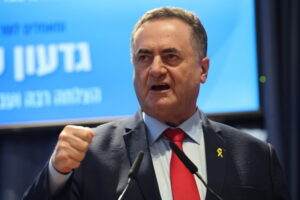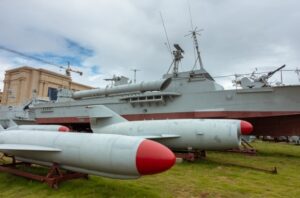The passing of Vardis Vardinogiannis marks a major event, a milestone signaling the end of an era. He was a quintessential figure in Greek business and public life. Vardis Vardinogiannis passed away today, November 12, 2024, at the age of 91.
Without a doubt, Vardis Vardinogiannis was an immensely influential personality, enveloped with the prestige and aura of a figure who, in part but through various ways, helped shape modern Greece.

He was also a man who, having survived certain death from a terrorist attack, downplayed the incident humorously. His remark about the rocket attack on his car by the “November 17” group was, “Saravakos took a penalty shot and hit the post.”
According to Forbes, with an estimated fortune of $1.9 billion, Vardis Vardinogiannis and his family are listed among the world’s billionaires. Naturally, Vardis Vardinogiannis was one of the wealthiest Greeks, having developed business activities both in and outside Greece, spanning many diverse sectors—fuel and energy, shipping, tourism, banking and finance, media, professional sports, and more.

Vardis Vardinogiannis was a leading businessman and the pillar of the prominent Vardinogiannis family, a “dynasty” whose title is fitting given the extensive and complex family tree, originating from its patriarch, Ioannis Vardinogiannis. Vardis was also a Navy officer and actively participated in the resistance against the military junta of the Colonels. Moreover, he narrowly escaped an assassination attempt by the terrorist group “November 17” in November 1990, when he miraculously emerged alive from his armored vehicle struck by three rockets.
As the leader for half a century of the now-giant Motor Oil Group and simultaneously a central figure in a large and tightly-knit family, Vardis Vardinogiannis has “passed into history,” as the cliché goes. However, he had already achieved, during his lifetime, the status of a symbol—a symbol of power, determination, success, seriousness, and discretion. He was a man who weighed his words carefully, but valued actions even more. Hence, his contribution to Greek society, formally attributed indirectly, was exemplified by his lifelong partner, Mrs. Marianna Vardinogiannis, and their charitable organization, the “Marianna V. Vardinogiannis Foundation.”
In a strange way, everyone knew Vardis Vardinogiannis, yet no one really did—except for those he chose to reveal his true self to: a man devoted to his business and family, who often surprised even his closest associates with his concern for even the smallest issues affecting any member of the “Vardinogiannis dynasty.” This was because Vardis Vardinogiannis operated with a clear sense of purpose, seemingly born to be a “captain” in every sense of the word.

Vardis Vardinogiannis considered Motor Oil an extension of his family. For at least 30 years, before handing over the daily management to his eldest son, Yannis Vardinogiannis, he personally knew most of the employees at the vast and labyrinthine Motor Oil refinery in Agioi Theodoroi, Corinthia.
Despite his natural sternness and the awe his imposing and reserved presence often inspired, the people who worked for him knew they could rely on his understanding and, not infrequently, his generosity. Even when his voice echoed from the gate to the refinery’s flare stack whenever he discovered something he didn’t approve of or deemed wrong.
Paradoxical as it may sound for one of Greece’s most successful entrepreneurs of all time, the core principle of Vardis Vardinogiannis’s management philosophy was invariably “our people first.” Thanks to Vardinogiannis, hundreds of individuals in need were hired at Motor Oil—sometimes regardless of their resumes. With criteria based on social or purely human needs, and often local ties, Cretans, for whom Vardinogiannis had a special fondness, and colleagues from the Navy, frequently along with their children or relatives, found employment and often stayed until retirement.

Family, our homeland, Crete, Greece were fundamental concepts in understanding Vardis Vardinogiannis’s way of thinking, decision-making, and actions throughout most of his life. Despite how unorthodox his “management manual” might have been, the results were overwhelmingly positive—and consistently so. Of course, the rapid growth Motor Oil experienced in recent years necessitated a different, more corporate and modern approach than Vardinogiannis’s original philosophy. Yet, even today, the top management of Motor Oil, the Board of Directors supporting Yannis Vardinogiannis, consists of people Vardis Vardinogiannis trusted and, in a sense, integrated into his extended family. Today, these same people, led by Yannis Vardinogiannis, run the Motor Oil Group, comprising dozens of interconnected companies in a dizzying network, with an annual turnover of several billion euros and spectacular profitability.
Although history and the outcomes have proven him the ideal leader for Motor Oil, in 1973, Vardis I. Vardinogiannis envisioned a different future for himself. However, on July 2 of that year, the founder, guiding force, and “soul” of Motor Oil, his brother Nikos I. Vardinogiannis, suddenly passed away. Until then, although he was a founding member and part of the Motor Oil Board, Vardis Vardinogiannis was primarily responsible for the family’s shipping sector. For the record, the inauguration of the refinery in Agioi Theodoroi took place just in November 1972, following roughly two years of construction work on the facilities.
Against the Junta, with the “Velos”
Before being called to helm Motor Oil, Vardis Vardinogiannis had attended the Hellenic Naval Academy and subsequently joined the Hellenic Navy, aiming for a career as an officer, potentially reaching the highest ranks. Naturally organized and endowed with leadership abilities, Vardis I. Vardinogiannis had earned the respect and admiration of his subordinates, peers, and superiors. It is even said that he could have easily become the Chief of the Navy, and at a relatively young age at that.

However, his rise in the Navy was halted by the regime of April 21, 1967. The dictators made it clear to Vardis Vardinogiannis that he was unwelcome in the Greek Armed Forces, forcing him into early retirement. The reason was his refusal to transport, using the vessel under his command, several political exiles to a barren island in the Aegean — and this during a severe storm. These individuals were considered undesirable by the dictatorial regime.
Vardinogiannis paid a heavy price for his refusal to comply with the junta’s orders. Initially, he was transferred to a less favorable post and was eventually forced out of service, even experiencing exile himself. He spent some time on Amorgos, an island used in 1967 for those deemed dissidents by the dictatorship.
Ultimately, Vardis Vardinogiannis retired with the rank of Rear Admiral and shifted his focus to the maritime industry, collaborating with his brothers, especially Nikos and George I. Vardinogiannis. Nevertheless, he maintained close contact with his Navy colleagues and friends, who were all active and eager to form a resistance movement against the Colonels’ Junta.
As a result, Vardis Vardinogiannis was not only informed but also secretly involved in the organization of the daring — and infamous — rebellion planned by the Navy against the dictatorship. The leading figure was the captain of the destroyer “Velos,” and close friend of the Vardinogiannis brothers, Commander Nikos Pappas. Pappas, along with a large group of Navy officers, had been plotting for a long time to strike a decisive blow against the regime. Despite strict secrecy and extensive precautions against leaks that could have compromised the conspiracy, the “Navy Movement,” as it was later called, was betrayed from within.

On May 22, 1973, one day before the planned uprising, junta loyalists surrounded the Salamis Naval Base. Most of the officers involved were arrested and taken to the interrogation offices of the Military Police (ESA), where many were brutally tortured. However, the destroyer “Velos II,” which was partaking in a NATO exercise at that time, under the command of Commander Nikos Pappas, broke away from the allied convoy and defected to Italy. Pappas sought political asylum for himself and his crew, while the global public followed the events of “Velos II” with great interest.
Despite the failure of the Movement, Pappas managed to bring international attention to the Greek issue and dealt a blow to the dictatorship. The “Velos” became a symbol of the struggle for freedom and democracy, and Nikos Pappas was hailed as a hero of the anti-dictatorial struggle, alongside numerous anonymous officers who suffered in the detention cells of the ESA. Under international pressure and the fear of backlash, the regime granted amnesty to the participants of the Movement, excluding Nikos Pappas. However, these officers were dismissed from the Greek Armed Forces, leaving them unemployed and marked as opponents of the regime, facing significant, possibly insurmountable, challenges in securing even basic means of livelihood.
To these former colleagues, Vardis Vardinogiannis immediately offered jobs at Motor Oil. By this time, he had succeeded Nikos I. Vardinogiannis as the head of the company, disregarding any potential repercussions. Simultaneously, he provided financial support to Nikos Pappas while he was abroad, spreading the anti-dictatorial message and attempting to organize resistance cells against the regime of Georgios Papadopoulos.
Even after the fall of the junta, during the post-dictatorship period from 1974 onwards, Vardis Vardinogiannis kept the doors of Motor Oil open to those who had resisted the junta, thus keeping the spirit of “Velos II” within his family circle.

His Roots
Vardis Vardinogiannis hails from Episkopi, Rethymno, and was born on December 4, 1933, as the fifth child among a total of eight born to Ioannis Vardinogiannis and Chrysi Theodoroulaki. Before him were four siblings: Pavlos (1925-1984), Amalia (1927-2016), Sifis (1929-2002), and Nikos (1931-1973). Following him were George (born in 1936), Theodoros (1942-1996), and Eleni I. Vardinogianni.
Regarding the family he created, after marrying Marianna (née Bournaki), Vardis Vardinogiannis became the father of five children: Giannis V. Vardinogiannis (born in 1962), Christiana (1964), George (1967), Nikos (1974), and Vardianna (1976).
From the early 1970s, when he took the lead at Motor Oil, Vardis Vardinogiannis set the family business group on a path of continuous expansion and growth. Always with the refinery at Agioi Theodoroi as its symbolic center and flagship, the Group incorporated numerous individual companies. The most notable among them include Avin Oil, Cyclon, and the representation of Shell in Greece (via Coral), nrg, MORE, VERD, Optima Bank, and television stations Star and Alpha (previously Mega Channel), among many others.

A pivotal moment, showcasing Vardis Vardinogiannis’ entrepreneurial spirit, was the strategic agreement between Motor Oil and the Arabian oil giant, Aramco. On March 14, 1996, to the surprise of the international fuel industry, Vardis Vardinogiannis signed an agreement in London for a joint venture between the Vardinogiannis Group and Saudi Aramco, the largest oil producer in the world.
The signing ceremony was marked by great formality, with the presence of Saudi Arabia’s Minister of Petroleum, Ali Al-Naimi. The Motor Oil-Aramco agreement entailed a restructuring of the Greek company’s shareholder base, with an equal 50% participation share for each side of the partnership. Aramco’s involvement in Motor Oil’s capital represented one of the largest foreign investments ever made in Greece, at least until 1996.
In 2001, following Motor Oil’s listing on the Athens Stock Exchange, Aramco’s stake decreased to 41.9%, and by 2005, the Greek company fully acquired the Arab stake. Regardless, this collaboration acted as a springboard for Motor Oil, firmly establishing its presence in the global petroleum market.
Vardis Vardinogiannis: Awarded for His Contribution to Business and Philanthropy
Ask me anything
Explore related questions





